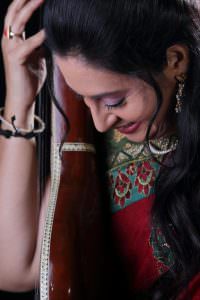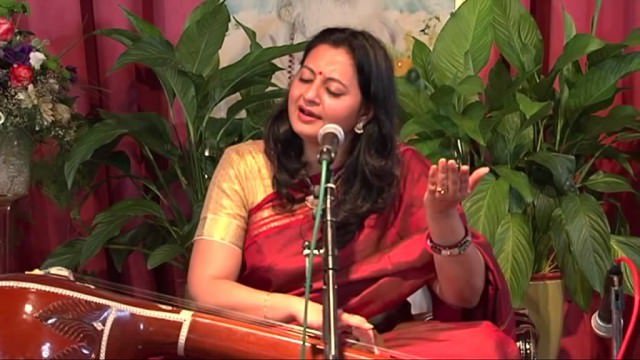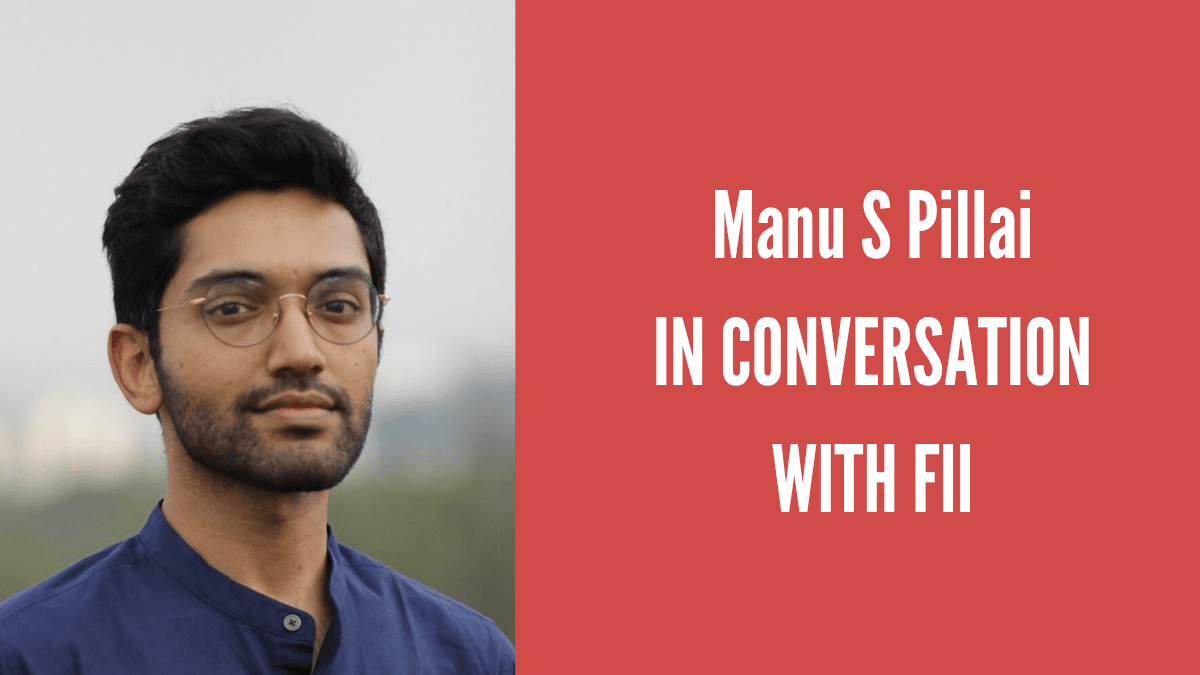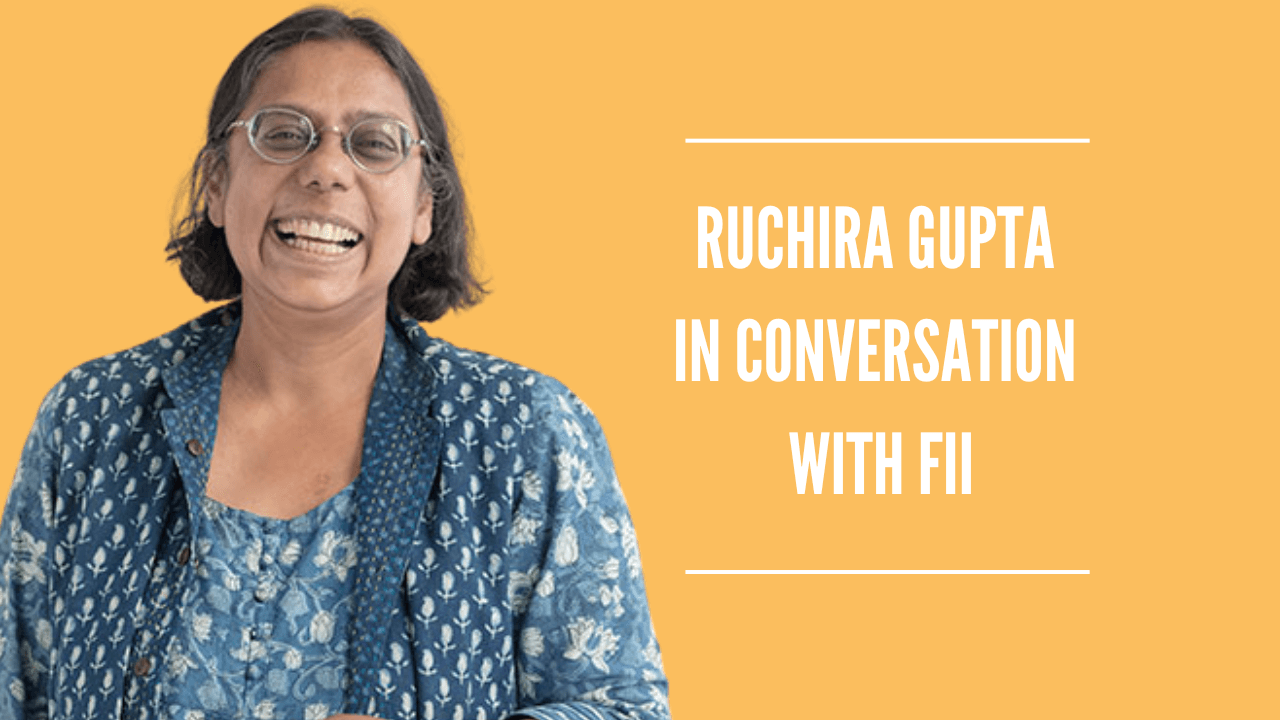Meeta Pandit is a familiar name to anybody who is acquainted with Hindustani Classical music. She is often acknowledged as the face of the Gwalior Gharana. The range of her voice is astonishing; and she can sing tappa, thumri, bhajan and the tarana with equal proficiency. She has won many accolades nationally as well as globally.
Dr Pandit has been committed to promoting classical music. While her performing part is unmatchable, she is equally well-versed with theory. After completing her Bachelors in commerce from Lady Shri Ram College, she went on to pursue Masters and then PhD in music. She is an inspiration to many women who have been sceptical about taking performing arts as a profession. Here we talk to her about her journey and struggles as a musician.
SU: You are the first female representative of the Pandit family and sixth in the unbroken lineage. You have accomplished a lot in your musical career. Would you like to add “despite being a woman” after that?
MP: No, I don’t think so. I have been following my passion and haven’t taken to music under any pressure. I am truly in love with singing and the art of singing which means everything else that comes along with it. Hence, whatever I do and the inspiration for that comes from within. There is nothing as to say despite being a woman.
SU: How difficult it is for a woman to find a place in the superstructure of the patriarchal, Gharana based Hindustani Classical Music?
MP: Gharanas don’t matter anymore, as differentials are blurred. Technology has changed the whole scene. Having said that, gharanas have been male-oriented and patriarchal but it goes back to the time as women were confined to home then. As we see in all areas, not just music, for women to make a place for themselves and to be taken seriously is an extra effort. So even in the case of music, it is like that. We face difficulties to find a place.
SU: This question is a derivative of the last question. As the first female scion of the Gharana, you did start a trend or end another. What kind of resistance did you face from the inner circle?
MP: Essentially I did not face any resistance to my singing but the question of choosing a career in music was where there was difference of opinions and they were more related to the nature of profession as in the stability, fairness in the system and similar factors. Those aspects were more concerning than the fact that I am a woman.
So on more practical grounds like when you are a performing artist, you travel a lot and spend a lot of time away from your home. So these were the kind of concerns rather than resistance. Now I see that the concerns were very genuine because these are faced by all women who would like to pursue a career in music or any performing art.
SU: I know that you decided to pursue music as a full-time profession after the early demise of your brother Late Tushar Pandit (may he rest in peace). Do you consider yourself as the accidental heir? Or would the things be different if he were alive?
MP: I had to pursue my father and convince him that I still was having a degree in my hand in music and hence I had to do an M.A. and PhD in music and I am also UGC-NET qualified. I had to do all this because my father wanted me to do it.
I would have still continued music if luckily Tushar had been there and that unfortunate incident had not happened. Music was my first love and I would have anyhow done it. So as far as taking up music as a profession is concerned, I don’t think things would have been different.
SU: After having performed for more than two decades on stage, what observations have you made in the evolution of audience? How much has that changed?
MP: Now the audiences have really changed because of the music which was enjoyed by a people who were more learned or a rather closed group. Now, this has both good and bad implications which have to be accepted.
It’s good that you have reached out, it’s good that it is democratic however its intricacies are lost in the heterogeneity of the audience. You see classical music is a cultivated interest. Not anybody can read Shakespeare or Kalidas. It’s a highly cultivated taste. It can be cultivated by hearing it. So it is the chicken and egg debate. Artist has to take care of these factors.
SU: How much has the classical music fraternity changed all through these years? Is it more welcoming to the young girls now?
MP: Oh yes, it is much more welcoming to the young girls. These days you can put up a clip on Instagram or Facebook. There are open mics all the time. A lot of young girls have been accommodated in the classical music circle. They might even be outnumbering. However, music continues to be a challenging profession for women. Society still, unfortunately, can’t handle women who know what they want, and who are strong and outspoken.
SU: We love how you have a forward-looking approach and yet you are firmly rooted in the traditions. How do you strike a balance?
MP: It comes quite naturally to me. After pursuing pure classical for so many years and performing on stage for so many years pure classical form. This increased my hunger for different forms of music and collaborations, I find it like a fertilizer.
I love to strike a chord different kinds of music and musicians, different traditions with different techniques and different thought processes. I find it absolutely mind-blowing, I love it and at the same time because of my firm rooting in traditions, it has never affected the pure form or my in classical.
SU: I was reading one of your interviews where you talked about how your family and gurus tried to persuade you to take a more stable profession than music because of being a ‘woman’. Now that you look at your journey in retrospect, what do you feel about it? Has being a woman been an obstacle?
MP: They were correct. As a woman, you have to be strong to follow your heart and on a journey as exciting and fresh every day as music. Seldom or may I say you have to be lucky to find meaningful partners along the journey who have a spine and grit to take the lifelong hard work which practising musicians experience.
I consider myself very lucky to be childlike in my innermost nature which has allowed me to forgive, forget and move on. And yes, being a woman has not been my obstacle, rather it is my strength. A woman is a nurturer and music is my baby.

SU: Okay, so let us come to this very overused word of the times- nepotism. Classical music is one of those disciplines where lineages are celebrated and are associated with a sense of pride. What do you think about it?
MP: Lineages are celebrated indeed and in my opinion, should be. There’s a deep value and of course, charm we all associate with continuity, unbroken chains or a connection to the past but it’s actually an extremely challenging space to be in. Not only do you face the tremendous scrutiny of people around you, you are constantly judging your own self on benchmarks that were set in a time and age quite different from ours.
On a serious note, there’s so much platform for newcomers now, in today’s time and age that it’s heartening. The music scene has never been more democratic and full of opportunities at this time.
SU: I have often observed that women belonging to traditional professions shy away from calling themselves a feminist. Do you call yourself a feminist?
MP: Who isn’t a feminist? The lady who cleans and swabs my house is highly aware of her rights and speaks about them just as emphatically as women from the well-known feminist bastion that I graduated from. Women have never been this vocal and aware, and in the future too the movement will go on evolving especially at the grassroots.
I think what is different is the expression. While some writers and artists beat their chest about being feminists and the others believe in following its principles quietly in the daily transactions of their life. To me, just as anyone else, feminism is not an overt celebration of womanhood, but the recognition and acceptance of women as equals and awareness of their contribution and role in the society. I suppose, to being the first woman in the family and one of the few in the gharana to be singing is my way of expressing my identity
SU: Classical music is seldom considered as an elitist hobby, beyond the comprehension of common men. Do you think that the classical music got caught up in silks and lustres and failed to constantly reinvent itself? How do you react to such criticism?
MP: Certainly not. Classical music has constantly invented and reinvented itself and it is one of the few art forms which have stood up to the test of time. The fact that the ragas have been popular both with the public and the musicians since years and years absolutely proves that classical music was able to sustain the interests of people. Otherwise for anything, whether it be music, dance or thought process, to sustain for such a long time requires a solid spine.
SU: You have collaborated with a lot of foreign artists and have performed in various countries. Did you notice any difference in their audience and musical fraternity and their attitude towards women?
MP: I’ve collaborated with different artists from different countries and one thing which is there for sure is the tremendous respect for Indian music. Now here comes the stark difference. They usually hear about things which are unfavourable to the women of India and then they see us.
They see us, come out of our houses and collaborating with male musicians as equals. I must tell you that in any country I’ve performed, the questions related to women’s condition in India has to come up. Then you realize the image of India has for treating its women in the world. And there is a truth in it. They’re also curious if I am the odd story or women generally get an opportunity. In the lighter moments, these questions do come up.
SU: Anything you would like to say to the budding musicians and the need to go beyond a gendered identity.
MP: You should really follow your heart. Professions are to be chosen as per your inner desires. These are not short-term goals for few years, they’re lifetime decisions. They’ve to be attuned to your emotions.
Also Read: In conversation with ComMutiny: The Youth Collective




